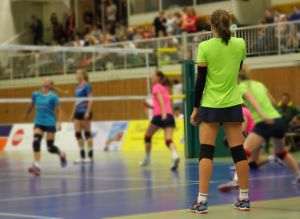• Cristian Mateescu, UCECOM: "Unfair competition, bureaucracy, the relatively difficult access to loans - among the problems we are facing"
• The Ministry for the Business Sector annually implements the National Program for supporting Crafts
• Maria Grapini, European MP: "The issue of craftsmen has not been resolved, especially when it comes to the visibility and distribution of their products, and that is why there are crafts which are at risk of being lost"
The issue of craftsmen in Romania has not yet been resolved, especially in terms of their visibility and the distribution of their products, says Maria Grapini, humanist European MP, who warns that there are crafts that are at risk of being lost (pottery, hat making, making of "opinci" (Romanian traditional footwear) and others, and in order to avoid such a situation programs aimed at crafts should be launched.
In 2013, during her term as minister of SMEs, Environment and Business and Tourism, Maria Grapini has initiated a project for promoting craftsmen through their participation in fairs subsidized by the state budget, which are still being held, and during her term as a European MP, she has organized exhibitions of that type in the European Parliament, stating that the Romanian craft products are well liked and in demand.
Mrs. Grapini told us: "I am very happy that vocational training has been resumed and that there is a legislation to incentivized craftsmen who train on the job the young people who want to learn a skill (The law of on-the-job-training, which we have initiated in 2014).
I think that the local administrations play a major part in this sector, but unfortunately it is not exploited. Craftsmen can be exempt from taxes on the promotional and rented spaces, because they do not have the necessary financial power.
The administrations could include in their budgets amounts for promoting craft products. They could host permanent exhibitions and centers for the sale of the craftsmen's products, especially because tourists are looking for such things".
• Cristian Mateescu, UCECOM: "We are facing unfair competition, bureaucracy, the difficult access to loans"
The cooperative companies associated with the National Union of Craftsmen Cooperatives (Uniunea Naţională a Cooperaţiei Meşteşugăreşti UCECOM) are assimilated to a degree of over 99% to SMEs and therefore they are facing the same type of problems which small and medium enterprises face, namely unfair competition (especially in the area of folk art and the traditional artistic crafts), bureaucracy, the relatively difficult access to loans (unattractive interest rates), according to a statement by Mr. Cristian Mateescu, vice-president of UCECOM.
He mentioned that the craftsmen cooperation sector has had for over 60 years a network of pre-college skill training, under the banner of the "Spiru Haret" Foundation, of which UCECOM is the sole founder, incorporating a college and ten technological high-schools, with a number of approximately 4,500 students and which are complemented by centers for training, qualification and professional reconversion. "Annually, about 2500 adults benefit from professional training courses", said Mr. Mateescu, who added: "Together with the other educational component, on a university level, conducted at the «Artifex» university, with two certified colleges and approximately 2600 students, we manage to ensure at least part of our needed human resource".
UCECOM, which has a role of representation on a national and international level, groups representative companies with activities in an organized form (production, services and trade). The UCECOM has directly and indirectly, over 460 cooperative entities, including 37 county unions and associations of cooperative companies, thus currently amounting to approximately 11,400 people, who, in their absolute majority hold a dual position - employees of their own organizations, and cooperative shareholders.
• The Ministry for the Business Sector implements every year the National Program for supporting craftsmanship and artisanship
The Ministry for the Business Sector, Trade and Entrepreneurship (MMACA), through its Entrepreneurship and SME programs (DAPIMM) and the Agencies for SMEs, attracting investments and the Promotion of Exports (AIMMAIPE), implement every year the national program for supporting crafts and artisanship.
According to data sent by the MMACA, the program seeks, through the organization over the course of three days of a national fair for artisanship and crafts, the support of small artisans and craftsmen in promoting their own products, the preservation and stimulation of wide scale promotion of domestic traditions through:
- gaining new foreign markets for that type of products and services;
- stimulating the internal demand for services and products, which involve a high level of manual processing;
- increasing the market visibility of craftsmen, as well as of the products and services provided by them;
- improving the access of craftsmen to market information and facilitating the exploitation of that information;
- developing the business contacts and establishing partnerships;
- promoting services and products conducted by resorting to traditional technologies and with a significant component of manual processing.
The program is aimed at individuals and small and medium enterprises which have as their goal the production and sale of products that preserve the specific elements of handcraftsmanship, the provision of services which involve a large number of manually executed operations or which are intended to promote crafts, professions, products and services with traditional characteristics.
The National Fair for Artisanship and Crafts 2018 was held between September 28th - September 30th, at the "Dimitrie Gusti" National Museum of Romanian Villages, and has been attended by 100 craftsmen and artisans.
The craftsmen participating in the 2018 program have presented manually weaved carpets, knotted carpets, the making of the "ie" (aka Romanian blouse), tapestries, towels; weavings - rope, string, rods, vegetal fibers; pottery, embroidery, lace, traditional and decorative ceramic, iconography, the making of folkloric dolls; egg painting, mask making, the preparation of vegetal colors, and the traditional painting of materials, the making of items from leather, iron, glass, wood; restoration workshop; workshop for the processing of wood and small artisan furniture, jewelry creation.
The total estimative budget allocated to the de minimis scheme for the implementation period for this program is 3560000 lei. The budget allocated to the de minimis scheme for the 2018 budget year has been of 890,000 lei. Applicants selected by the exhaustion of the funds allocated to the program had their fair participation fee waived.
The scheme is valid until December 31s, 2020, and the payouts as part of the de minimis scheme will be made until December 31st, 2021.
The program also funds, up to a certain amount, the transport and accommodation expenses for beneficiaries and their products. Out of the budget allocated to the conducting of activities specific to the program the following can be funded: TV and radio advertising, leaflet printing, editing of promotional materials, editing/multiplication of materials for conferences, seminars, round tables, workshops and presentations, renting of spaces, utilities, set up of stands and conference spaces, purchasing or leasing of fixed assets and of items needed for the event, sending of invitations, trainer fees, protocol expenses.
Through the implementation of the program between 2017-2020 it is estimated a maximum number of 450 beneficiaries will receive a de minimis aid.
• Eligibility criteria for the program conducted by MMACA
The mentioned program is applicable to certified individual traders and companies that meet specific cumulative criteria on the date of their application.
For companies, those are:
- fully privately owned;
- have a net annual turnover of up to 50 million Euros, equivalent in lei, or they own total assets which do not exceed the equivalent in lei of 43 million Euros, according to the latest approved financial statement;
- had an annual median number of employees below 250 in the previous fiscal year;
- have as their line of business the manufacturing and sale of products that preserve the specific nature of handcrafted products, the provision of services that involve a large number of manually executed operations or have as their goal the promotion of crafts, professions or products and services with a traditional nature;
- are registered and operate in Romania;
- have filled out the registration form and following the verification they have been selected to participate in the event;
- have not exceeded the de minimis cap of 200,000 Euros throughout two fiscal years for a single company and 100, 000 Euros over the course of three fiscal years for the beneficiaries who conduct merchandise shipping activities on behalf of third parties or for pay.
The de minims aids do not get cumulated with the state aids granted for the same eligible costs.
The "BURSA" newspaper together with the founding father of the CONAF, Cristina Chiriac, have begun the promotion of female entrepreneurship since back in 2012, through a number of articles and conferences. The next event on the subject will be held in March.
According to the MMACA, the objective of the de minimis scheme is to stimulate the development of crafts and small industry in Romania, strengthen the small craftsmen and artisan class, who operate individually or through associations or other organizations, especially in rural areas, as well as in the urban ones, protecting the professions which involve a large number of operations conducted manually in their practice and the relaunch of their services and products, especially those of a traditional nature, including objects of folk art and artisanship, the promoting of these products and services on the national and international markets.
-------------
According to the National program for supporting crafts and artisanship, the products and services made/provided by the craftsmen and artisans are the ones made in limited series or those that are unique, either completely manually, or with the help of manual or even mechanical tools, as long as the manual contribution of the craftsman or artisan remains a substantial component of the finished product, and are characterized by the following:
- are products without restrictions on quantity and which use raw, unprocessed materials, resorting in general to natural resources;
- the special nature of craft and artisan products derives from their distinctive traits, which may be: artistic, creative, cultural, decorative, traditional, symbolic and significant from a religious or community point of view;
- comprise a large array of objects and activities, which exploit the traditional techniques, raw materials, shapes and ornamentations, as well as of the folk creation of various types;
- are products and services with an artistic value, but also have usefulness, which preserve the specific of the manual and traditional execution.
The folk art products are made by the folk creators and craftsmen, who preserve the authenticity and ethnic and/or cultural specifics of a certain area.
























































